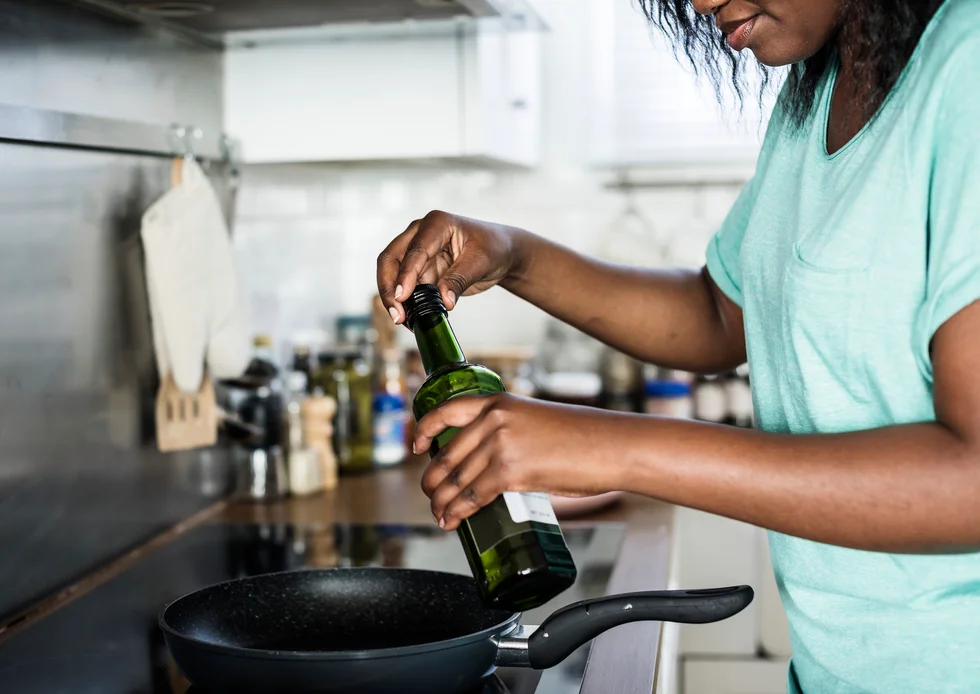Last week I had the pleasure of attending a two-day nutrition media immersion event at the beautiful Sanctuary Camelback Mountain Resort & Spa in Scottsdale, Arizona. The conference covered the power of plant-based eating, new nutrition research, consumer insights and trends pertaining to nutrition, health and wellness.
You don't know what you don't know—until you uncover some truths. What amazed me is that even though I thought I knew about a lot of these foods, there was a lot I didn't know. Check out these Tips for Healthy Weeknight Meal-Prepping.
Here's some food for thought.
WATERMELON
What I knew: It's one of my favorite fruits, satisfies my sweet tooth and is thirst-quenching.
What I learned:
- It may be sweet, but watermelon is low in calories; there are only 80 calories per two-cup serving. Find out about The Best Fruits for Weight Loss.
- Watermelon is 92 percent water.
- This fruit is filled with so many valuable vitamins and minerals: vitamin A, for eye health and immunity; vitamin B6, a good source of workout fuel; vitamin C, an antioxidant that can help boost immunity against viruses (a good thing with flu season coming up!); lycopene, which may help protect against harmful UV rays; and citrulline, an amino acid that may help maintain blood flow.
- There's no waste with watermelon: It's 100 percent edible, composed of 70 percent flesh and 30 percent rind. The rind has a lot of health benefits, just like the seeds—most notably, citrulline—and can be used to make pickles or even juiced for a smoothie.
OLIVE OIL
What I knew (or thought I knew): You can't sauté with olive oil, because it has a low smoking point and will burn and create an acrid taste in your food, emitting dangerous and toxic compounds.
What I learned:
- Several studies have found olive oil to be more resistant to heat than other oils like soybean, corn and sunflower. And its high antioxidant content makes it especially resistant to changes that can occur when heated (which can happen with any oil, not just olive oil).
- Keep an eye out for its smoke point (which ranges from 375 degrees to 470 degrees Fahrenheit, depending on the type of olive oil you use). This is when it'll start to, well, smoke. At this point, it's not harmful for your health, but it can cause the loss of nutrients and affect the taste of your food.
- Light olive oil does not contain fewer calories than other types of olive oils; they all contain the same calories per serving.
- You may think that the greener the oil, the better the quality, but the color of olive oil has nothing to do with its quality. Instead, it has to do with the types of olives and the harvest cycle.
- Olive oil won't last forever. But when handled properly (store it in a cool, dark place), it'll last about two years from when it's bottled. Once opened, try to use it within two or three months. Learn more about eating olive oil as part of a healthy Mediterranean-style diet.
IDAHO POTATOES
What I knew (or thought I knew): Potatoes are white, starchy carbohydrates. Therefore, potatoes are fattening and unhealthy.
What I learned:
- Potatoes contain lots of phytonutrients, plus they have antioxidant activity and support immunity.
- One 5.3-ounce potato contains jut 110 calories and is free of fat, sodium, cholesterol and gluten.
- White, starchy foods, like processed grains and sweets, can raise blood sugar quickly and cause inflammation. But potatoes are actually good for your health, with valuable sources of high-quality carbohydrates plus potassium, fiber and vitamin C.
- Often, it's what people add to the potato that makes it unhealthy, like topping a baked potato or mashing a cooked potato with things like sour cream and butter. The healthiest way to eat a potato is baked, with a squeeze of lemon and sprinkled with salt and pepper or topped with salsa.
- Potatoes should be stored in a cool area, away from light. Don't wash before storing, because the dampness can cause decay.
- If you steam potatoes, save the water, which contains some of the potatoes' valuable nutrients, and use it to make gravies or bread or moisten mashed potatoes.







